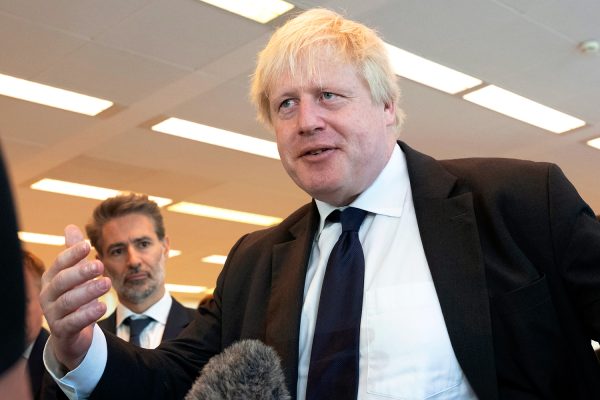
Britain’s Conservative Party learned the lesson of the 2017 election, when then-Prime Minister Theresa May lost her majority on the back of some rather limp campaigning.
This year, under the more charismatic, if perhaps less reliable, Boris Johnson, the Conservatives have been in an optimistic mood, emphasizing hoped-for possibilities of economic, political and social renewal after Brexit.
The mantra of their campaign was to “get Brexit done” after three years of back-and-forth negotiations with the EU. The calculation was that this would appeal to working-class Labour voters in constituences that want to leave the EU. The exit poll released by the three major broadcasters after polling places closed on Thursday night appears to bear this out.
Labour’s weakness
The Conservatives also benefited from the weakness of their opponents.
Labour Party leader Jeremy Corbyn has been somewhere between publicly neutral and downright confused on the issue of Brexit. My associate Dr Christopher Fear has argued this played into the Conservatives’ hands: with a majority, the Conservatives should be able to implement the withdrawal agreement Johnson negotiated with the EU.
The Labour leader’s prevarications on Brexit go hand in hand with his reputation for sympathizing with historical enemies of Britain, such as Argentina and the IRA, and his party’s adoption of woke positions on issues that appeal to younger, cosmopolitan voters, who might otherwise have voted Liberal Democrat, but which leave its traditional, socially more conservative working-class supporters cold.
Perhaps most damaging has been Labour’s lurch to the left. The party’s manifesto promises to expand the state into nearly every aspect of people’s lives along with very ambitious spending plans to the tune of nearly £100 billion.
This may have gained support among radicals previously voting fringe parties like the Socialist Workers, but it has not endeared them to centrists, many of whom have been purged from the party and decried as “Red Tories” by Corbyn loyalists.
Other parties
Another factor in the Conservatives’ favor was Nigel Farage’s decision to stand down Brexit Party candidates in constituencies that voted to leave the EU in the 2016 referendum. That left socially conservative working-class voters with no alternative.
The Liberal Democrats may have been able to hoover up moderate Labour voters and Conservative “remainers”, however, their reputation remains tarnished on the left due to the 2010-15 coalition with the Conservatives, then led by David Cameron.
Scotland
The SNP and Scotland offer a different angle again.
The Scottish National Party are opposed to Brexit but in favor of splitting the country from the United Kingdom. The exit poll predicts they will win nearly all the 59 seats in Scotland, but the overall result could still be a disappointment. Had the Conservatives remained in the minority, the SNP might have been able to negotiate a second independence referendum in return for propping up a Labour government. Now it looks like they will be dominant north of the border but without leverage in Westminster.
